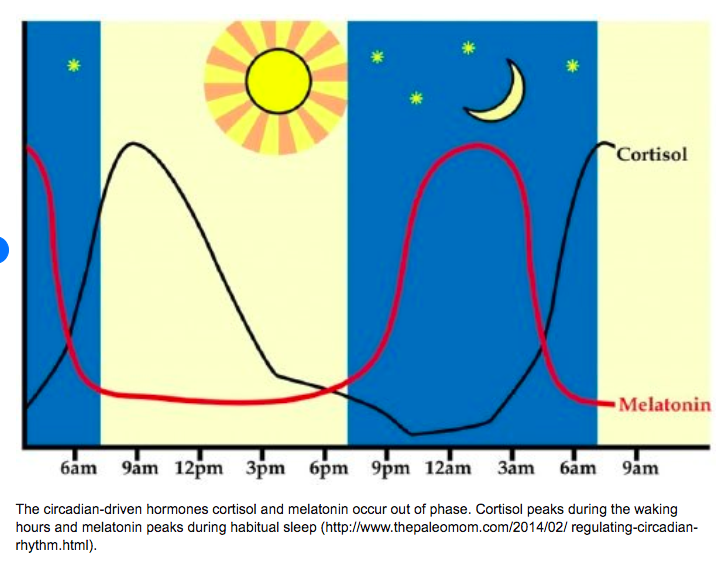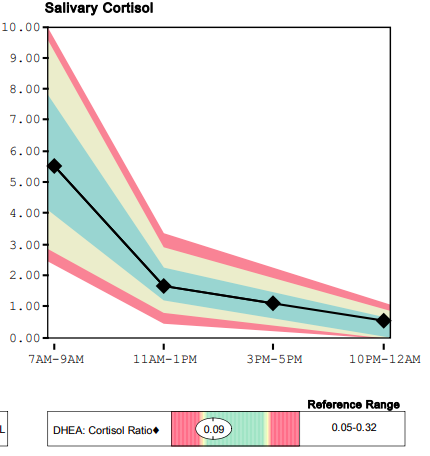Managing Stress and Adrenal Dysfunction
Supporting You In Managing Stress and Adrenal Dysfunction
Stress. The word itself may trigger a physiological response; it is a perception after all. And stress makes us sick.
The study of stress physiology and how it influences our health has grown in recent years.
There has been a critical shift in medicine recognising that many of the damaging chronic diseases can be caused, or worsened by long-term stress.
We are activating a physiological system that has evolved to respond to acute physical emergencies like a fight or flight, and turn it on for months or even years on end. We deal with several stressors on a daily basis, from family to finances, deadlines and disease, and yet the body has only one stress response, as it tries to get back to balance or homeostasis. Simply thinking about, or anticipating the stressor can trigger the stress response.
Our adrenal glands located on top of each kidney produce various hormones that support essential bodily systems, such as cortisol and sex hormones. They help our body respond to stress, and they balance our blood sugar levels and fluids.
In adrenal gland disorders, our body is producing too much or not enough hormones for our body to function optimally.
Adrenal dysfunction also known as adrenal fatigue can be the result of chronic stress exposure – this can be either physical stress due to an infection or toxins, or emotional/mental stress.
Common causes of adrenal dysfunction
- Lack of sleep
- Poor diet (high sugar foods can lead to overproduction of cortisol)
- Stimulants such as caffeine and alcohol
- Chronic infections
- Environmental toxins
- Chronic emotional stress
- Over exertion
- Lack of relaxation or recovery
- Toxins
- Negative attitudes and beliefs
- Fear
What Are the Symptoms Of Adrenal Dysfunction?
Chronic stress can cause our adrenal glands to produce too much cortisol leading to symptoms of fatigue and tiredness.
Other common symptoms include:
- Sleep disturbances (mainly trouble falling asleep and difficulty getting up in the morning)
- Continuing fatigue not relieved by sleep
- Cravings for salt or salty foods
- Cravings for sugar and sweet foods
- Increased effort to do every day tasks
- Lack of energy
- Decreased sex drive
- Decreased ability to handle stress
- Increased time to recover from illness, trauma or tragedy
- Heart palpitations
- Dizziness or light-headed when standing up too quickly
- Mild depression or loss of enjoyment or happiness with life
- Increased PMS
- Brain fog and fuzzy thoughts, lacking cognitive clarity
- Memory less accurate
- Loss of body hair
- Skin discolouration
- Body aches

Opportunities To Address Stress and Adrenal Dysfunction
If you are struggling with any of the above symptoms it is important to rule out any medical causes.
We address adrenal dysfunction with a holistic approach utilising both lifestyle and dietary interventions.
It is important to understand the root cause of your stress and whether it is physical or emotional, or perhaps both. One of the first principles is to, where possible, address (or remove) the cause or aggravating factors which may be causing a health drain.
Lifestyle changes are often an important part of any recovery program.
Stress management techniques such as relaxation, deep breathing, mindfulness, moderate physical activity and yoga can help reduce the levels of cortisol in your body and thus reduce the over-stimulation of the adrenal glands.
Following a healthy diet with essential fats, good quality protein and lots of colourful vegetables can help to balance your blood sugar. Being aware of not only what you eat, but also when you eat is important. Dealing with any cravings is another important goal. Staying hydrated with clean, filtered water and avoiding high intakes of coffees, teas and energy drinks is key too.
Targeted supplementation can play a crucial role in supporting adrenal function. Of all the vitamins involved in adrenal metabolism vitamin C is probably the most important. The more cortisol made, the more vitamin C is used.
Other important nutrients to consider are the family of B vitamins and vitamin E.
And the minerals magnesium, calcium shouldn’t be forgotten.
Trace minerals such as zinc, manganese, selenium, molybdenum, chromium, copper and iodine should also be considered in a comprehensive program of support.
Herbal adaptogens such as Licorice root (Glycyrrhiza glabra), Ashwagandha root (Withania somnifera), Korean Ginseng (Panax Ginseng) and ginger can also be very beneficial for adrenal support.
BOOK A CALL WITH OUR FRIENDLY ASSESSMENT TEAM
Please check Our Fees page before booking a call.
Choose a day and time that works for you.
Tell us what is going on for you.
Let us explain how we can help.
Functional Testing options
Cortisol helps to get us up and out of bed, and has a circadian rhythm decreasing through the day to sleep. It has an inverse relation to melatonin which regulates our sleep cycle.
We offer several comprehensive adrenal stress tests with private laboratories measuring cortisol, DHEA and Secretory IgA (SIgA) to assess stress response and to gain deeper insight into your adrenal function. More comprehensive hormonal profiles can also be considered where relevant.

